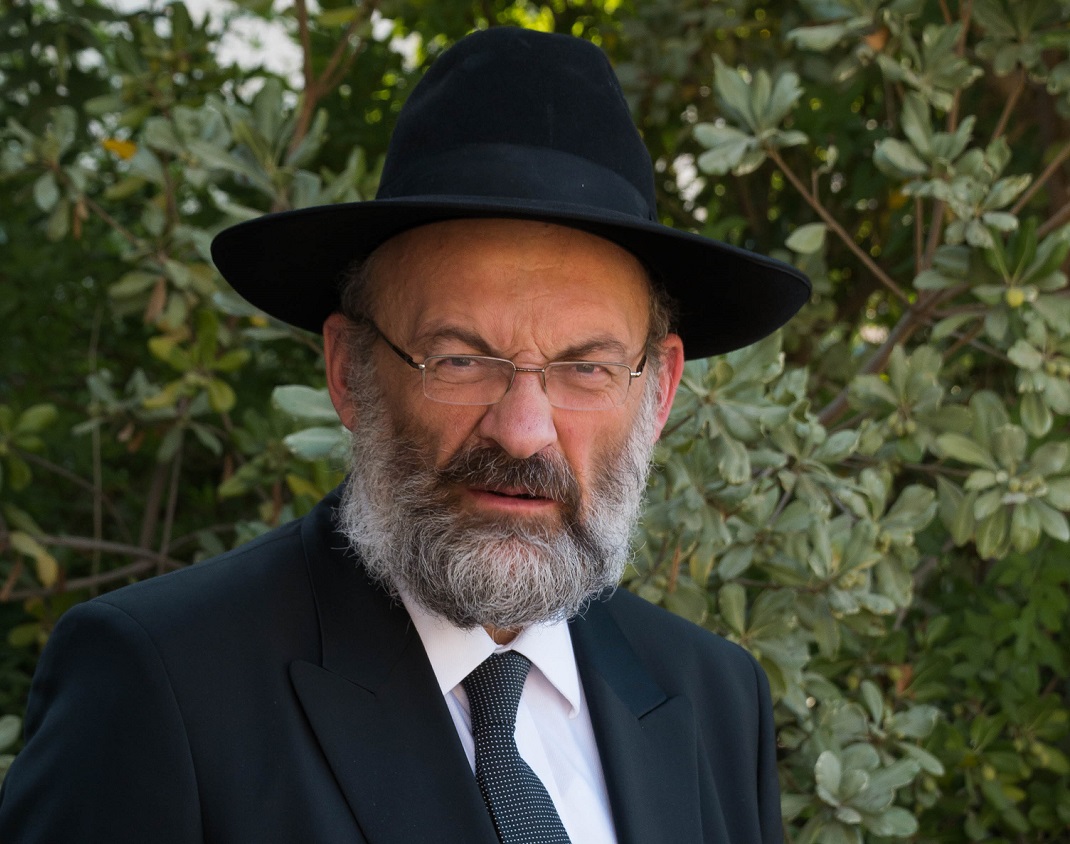Giving Us a Leg Up

We don’t know why Hashem sends us yissurim. No one understands Hashem’s plan. But one thing is clear: He wants us to grow
Prepared for print by Rabbi Eran Feintuch
I once saw an interview of a veteran who lost both his legs in Vietnam. He wasn’t Jewish, but I was stunned by the Jewish tone of his words. He said that if some angel were to come offer him both his legs back, in exchange for giving up all he’d learned from life as a double-amputee, he’d tell the angel to get lost. What he’d gained, he attested, was much more valuable than what he’d lost.
He was a remarkable person, who really thought about his life. There was no solution to his plight. Yet rather than sink into despair and self-pity, he took the path of personal growth.
Life is full of suffering. Baruch Hashem, not all yissurim are as devastating as the loss of one’s legs. But pain, frustration, and disappointment are frequent visitors in our lives. How should we as Jews deal with yissurim in a growth-oriented way?
First of all, we must know that everything is for the best. Everything that happens in our lives is part of Hashem’s benevolent plan. That emunah helps us accept the yissurim and survive them with inner peace. But that’s only the first step. Hashem doesn’t just want us to survive the yissurim He gives us. He wants us to grow from them.
We don’t know why Hashem sends us yissurim. No one understands Hashem’s plan. But one thing is clear: He wants us to grow.
Hashem is our loving Father. A good father doesn’t suffice with giving his children what they need to be happy children. He raises them and educates them so they will grow up to be successful adults.
Hashem wants the best for us. He doesn’t want us to go through life on the same level, like perpetual children. He wants us to flourish and rise to our full spiritual stature.
That fatherly desire lies at the heart of Hashem’s relationship with Klal Yisrael. In parshas Yisro, Moshe Rabbeinu tells the Jewish People: Hashem is giving you the Torah “in order to raise you up.” Hashem gave us the Torah in order to elevate the Jewish nation as a whole, and each and every individual in it, to our full spiritual potential.
Just as Hashem wants us to grow through the mitzvos, He also wants us to grow through our experiences. Every situation in life offers an opportunity to become a bigger person.
We know firsthand that the difficult times in life help us grow when the difficulties are manageable. But we don’t see how it’s possible to grow from outright suffering. Significant yissurim, whether physical or emotional, stifle us and hinder our avodas Hashem. They prevent us from davening, from learning, from doing chesed. They hijack our thoughts, and make us anxious or depressed. We can’t help but wonder: “Why is Hashem rejecting my avodah?”
That feeling is due to our mistaken understanding of personal growth. Growing doesn’t just mean “shteiging.” Yissurim certainly don’t facilitate that uplifting feeling of closeness to Hashem. Real growth means change. And there’s nothing like yissurim to push us to change. Just as children develop and mature, we need to break free from our negative tendencies and rise to new levels.
When everything goes smoothly, it’s very difficult to push ourselves to grow. Personal change isn’t always geshmak. More often than not, it takes difficulties to pull us out of our comfort zone and show us how we need to develop.
But how do we identify the avodah Hashem wants from us? Sefer Iyov (chapter 36) teaches us the guiding principle. The pesukim say that if we listen to Hashem’s message when He sends us yissurim, our days will be good and pleasant. But those who don’t listen will leave this world without knowledge, having learned nothing from the yissurim. What deafens a person from hearing Hashem’s message? The next pasuk explains: Their hearts are corrupt with flattery.
“Flattery” here is a mashal. A person flatters another because he must have the other person’s approval. He needs that self-validation; without it, he’s lost. The intent of the pasuk is that we don’t hear Hashem’s message, because we’re unwilling to accept life without the things we feel we can’t live without, the sources of our self-validation. We all have things we feel we can’t have a meaningful life without. Some need to be the movers and shakers in their community. Some need to be respected by others; some need to feel accomplished. Everyone has needs they feel their lives depend on. Those needs are like our two legs. We can’t imagine life without them.
Sometimes, Hashem sends us yissurim that jeopardize the “legs” we stand on. That’s why they’re so painful. A person of means who lost his wealth might be able to endure not having the lifestyle he’s accustomed to, but he can’t stand the thought of losing his social status and influence. Yissurim hurt the most when they threaten the needs we think we can’t live without.
When that happens, it’s Hashem’s message that our personal growth lies precisely in escaping our dependence on those needs. Sometimes, our needs are negative, and we can understand what we stand to gain by breaking free from them. A person who’s dependent on social influence might trample on others to retain his status. A person who’s addicted to prestige might lie or dupe others into thinking he’s more learned, astute, or righteous than he really is.
But in many cases, we don’t understand what we could gain by parting from our needs. Hashem, however, knows that our personal path to growth lies in the process of learning to live without the “legs” we depend on for our sense of meaning. The double-amputee learned that not only could he survive without his legs, he in fact grew much more without them. If we want to reach our potential, we have to listen to Hashem, and learn to find meaning in life without the external sources we always relied on.
A few months ago, I met a kollel yungerman who was devastated by his inability to find a fulfilling career in Torah education. Despite his intense financial pressure, he couldn’t bring himself to even consider a secular career. He was a talented learner, and desperately needed the self-validation of a high-level Torah profession. I learned the pesukim in Iyov with him, and he saw that Hashem was sending him a message to break free from that dependence.
He recently called to tell me that he’s taken a job, and though he’s still disappointed, he’s discovering a new world. He’s beginning to learn that it’s possible to find fulfillment without glory, validation without acclaim. He’s becoming a more responsible man, who works hard to fulfill his family’s needs. Though he doesn’t know what Hashem has in store for him, his current experience is teaching him a great deal. But had he not overcome the “flattery” of his heart, he would never have heard Hashem’s call to grow.
When yissurim come our way, we have two options: to listen, or not to listen. It’s not easy to listen to Hashem’s call for personal change. It’s painful to give up on the “legs” we stand on. But Hashem knows that that brave step is our path to greatness. If we take it, we will discover that the growth we’ve gained is much more valuable than what we feel we’ve lost. We, too, can discover the secret sweetness of suffering.
(Originally featured in Mishpacha, Issue 890)
Oops! We could not locate your form.




